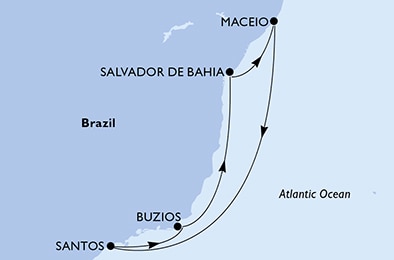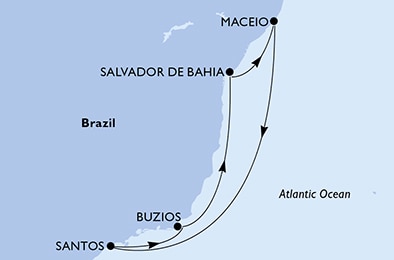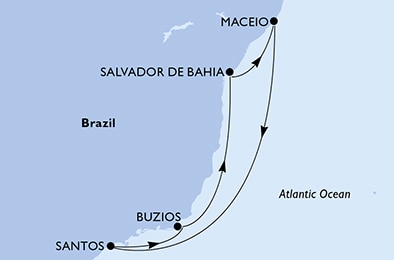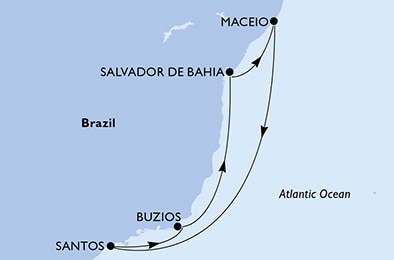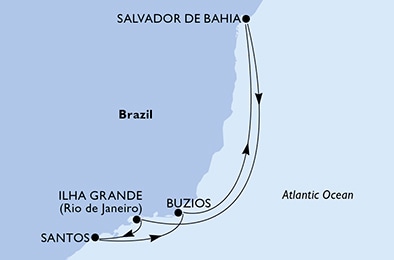
Port Salvador
Cruise tourism is of significant importance to the economy of Salvador, Brazil. As one of Brazil's oldest cities, Salvador offers a unique blend of history, culture, and natural beauty that draws in thousands of cruise ship visitors each year. These cruises contribute significantly to the local economy, with visitors spending on accommodations, food, sightseeing, and other activities.
During their stay, cruise ship passengers engage in a multitude of activities. Some of the popular attractions include the historic Pelourinho district, which is a UNESCO World Heritage Site, the beautiful beaches of Porto da Barra and Farol da Barra, and the vibrant Afro-Brazilian culture visible in the local music, dance, and cuisine. Cruise ship companies also organize excursions to these sites, adding to the local tourism revenue.
History
Port Salvador, often known as Porto de Salvador, is one of the oldest harbors not just in Brazil but in the Americas. Founded by the Portuguese in 1501, it served as the first slave market in the New World, a chilling testament to its colonial past. Over the centuries, it has been transformed into a modern port, handling millions of tons of cargo annually.
In 2007, the government of Brazil embarked on a significant upgrade of the port's infrastructure. The aim was to allow Porto de Salvador to accommodate larger vessels and increase its cargo handling capacity. Today, it serves as a crucial transit point for a broad range of goods, including soybeans, wheat, petroleum, and vehicles. Its history and modern significance make Port Salvador a pivotal maritime hub in Brazil.


